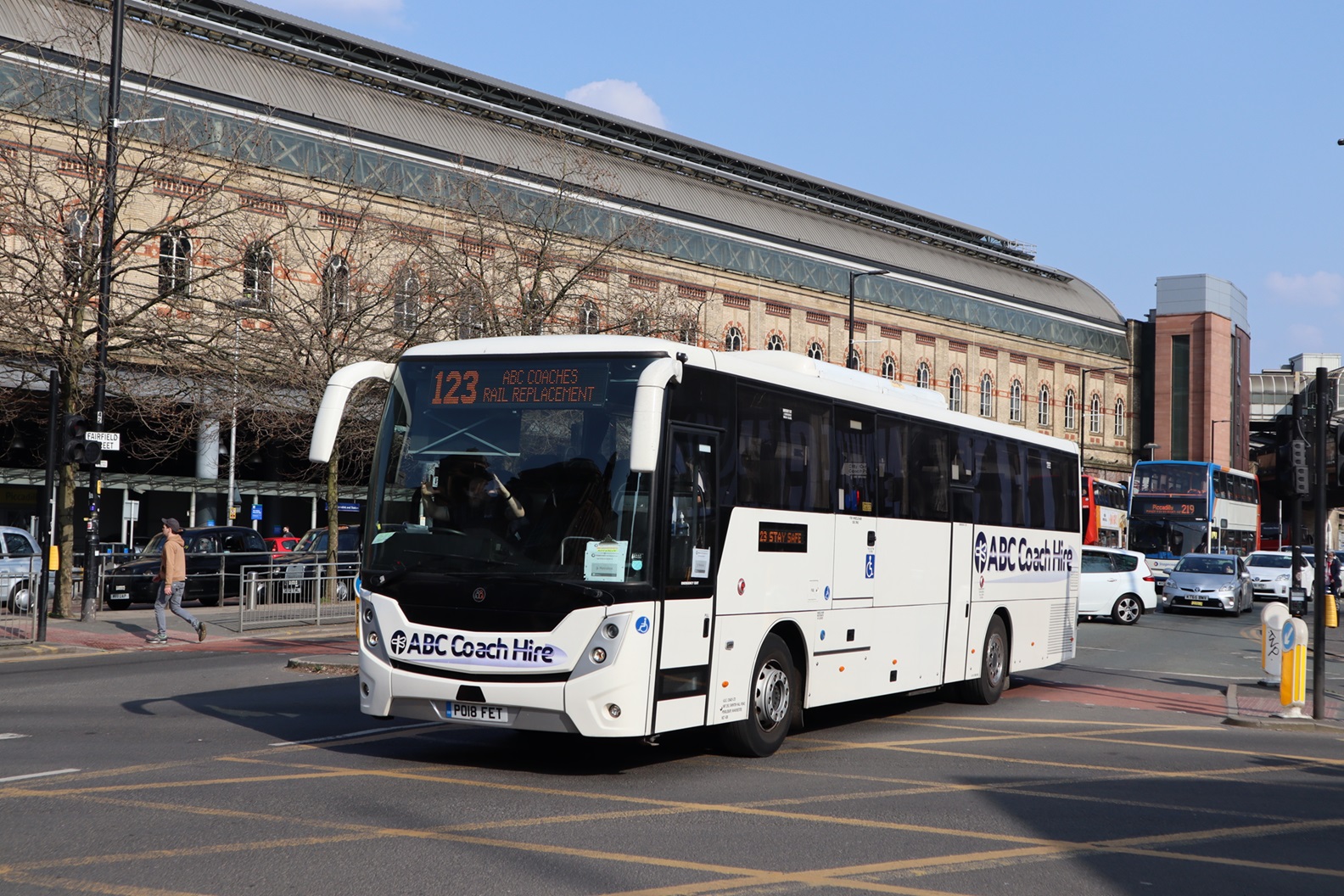As the Labour government advances its plan for the renationalisation of most UK rail services through Great British Railways (GBR), the landscape of rail replacement services is set for change.
With a focus on making rail services more reliable, affordable and accessible, particularly amid ongoing disruptions, these plans offer an opportunity to address longstanding challenges within the rail replacement industry and set new standards for managing service interruptions effectively.
One of GBR’s primary goals should be to establish clear, consistent standards for rail replacement services. Currently, train operating companies (TOCs) arrange that rail replacement independently, leading to a patchwork of quality and responsiveness.
By standardising criteria, GBR can ensure that all replacement providers meet consistent expectations for vehicle accessibility, response times, and communication. Such a shift would provide passengers with a more predictable and cohesive experience during disruption, reinforcing confidence in the rail network despite service interruptions.
Great British Rail Replacement (GBRR), launched this year by CMAC Group, aims to play a key role in this effort by focusing on enhancing the customer experience during rail replacement. As an independent entity, GBRR can collaborate with GBR to contribute insights on setting these standards.
With its expertise in managing diverse disruptions, GBRR is well-positioned to support GBR’s push for consistent, passenger-centric standards, advocating for approaches that improve the experience at every touchpoint of the rail replacement process.
Will centralisation be a benefit to rail replacement?
With renationalisation, GBR should also focus on providing coach and bus operators with better support to deliver rail replacement services effectively.
Currently, those providers face complex compliance requirements, such as PSVAR, and often deal with payment and administrative delays. Under GBR’s oversight, a streamlined process for regulatory compliance and faster payment terms could make it easier for coach and bus operators to meet standards while focusing on delivering a reliable service.
That shift would not only benefit operators, but would also expand the pool of available, compliant vehicles, ensuring greater capacity and readiness for both planned engineering work and sudden disruption.

With the continued demand for quality rail replacement services, it is essential for GBR to reduce administrative burdens on operators. By investing in technological solutions, including real-time analytics and streamlined communication systems, GBRR can facilitate quicker resource deployment during emergencies and enable proactive planning for anticipated disruptions.
Improved collaboration between GBR, its partners and transport operators will enhance the passenger experience, reducing confusion and wait times associated with rail replacement.
Prospectus coming from GBRR
Under a national framework, GBR will have the opportunity to implement a robust disruption management plan that goes beyond the current approach where TOCs handle disruptions individually.
By centralising oversight, GBR can implement proactive disruption response plans across all TOCs and third-party providers, addressing critical aspects such as real-time communication, resource mobilisation, and customer service standards. This approach would minimise the confusion that often arises during rail disruption, ensuring that passengers are promptly informed and efficiently directed to alternative transport options.
GBRR’s upcoming rail replacement prospectus, developed through consultation with rail stakeholders, reflects a commitment to these values, highlighting best practice to improve the passenger experience during disruption.
Through coordinated standards and shared resources, GBR can collaborate with GBRR and other industry partners to implement a cohesive and effective strategy for managing both anticipated and sudden disruption across networks.

A national rail replacement fleet or not?
While GBRR could consider the viability of operating a national fleet for rail replacement, logistical and financial constraints suggest that partnerships with specialist providers may be more practical.
A centrally owned fleet could standardise replacement service quality; however, leveraging the flexibility and expertise of third-party providers such as GBRR might offer the most efficient balance between quality control and operational agility.
As GBR takes shape, collaboration with established providers will ensure that rail replacement remains responsive and adaptable without incurring the high costs associated with maintaining a dedicated fleet. Partnerships with independent entities like GBRR, which already support TOCs with scalable and reliable rail replacement solutions, can strengthen the network without requiring direct fleet ownership.
These partnerships have the potential to provide the rail system with both the resilience and the flexibility needed to handle disruption effectively while remaining cost-efficient and passenger focused.
The Labour government’s nationalisation plan offers a pathway to reshape the UK’s rail services dramatically, with GBR positioned to build a cohesive, passenger-centric network. In enhancing rail replacement procurement, GBR can focus on consistency, strategic support and seamless management of disruption to create a reliable experience for all passengers.
By partnering with independent service providers like Great British Rail Replacement, GBR can also help to lead a transformation in rail replacement services, aligning with the modern passenger’s needs while ensuring operational resilience and accountability.
These changes are essential as the renationalisation process progresses, helping the rail industry to achieve its goals of creating a reliable, accessible and resilient network for the future.
























